Analysis: How Toulon use their jumbo-sized midfielders Ma'a Nonu and Mathieu Bastareaud

Big spending Toulon’s arsenal of world-class backs gives them any number of potential combinations each week.
However, in their European Champions Cup win against Bath, they fielded their biggest possible mid-field: the supersized combo of Ma’a Nonu and Mathieu Bastareaud, giving them two noted power runners to fuel their attack.
Toulon rely on the brutal running of Bastareaud, and compliment that with the full range of Nonu’s attacking game.
This is how they play them:
Bastareaud-ball
The Frenchman is the preferred carrier of the two, with Toulon using him as a workhorse on set-piece carries to build a platform and restart play. There are no subtleties about it, Bastareaud is fed the ball directly off the base of the scrum and let loose at the opposition 9-10 channel.
Toulon’s exit plan, if they are not camped on their own line, is Bastareaud. They will look for a strong carry out of their own 22 and keep the ball in hand – not clear with a kick.
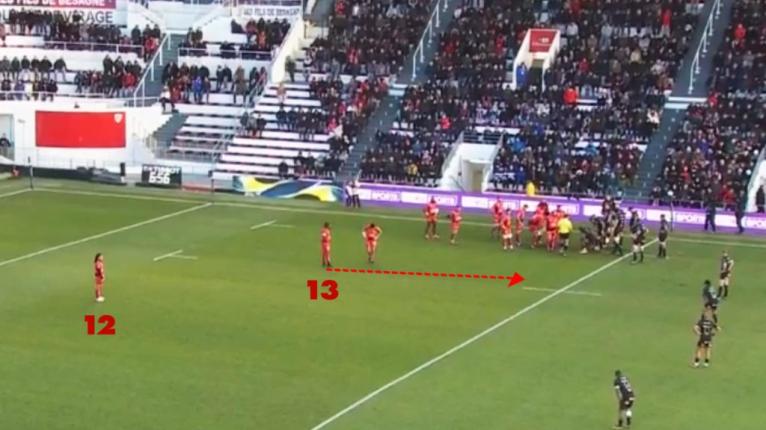
At a whopping 128 kgs, he is more than a handful for inside backs. He gets across the gain line more often than not, taking out multiple defenders and giving Toulon front-foot ball.
Their forwards usually take the second carry the same way, removing more back defenders (usually the 10 or 12) which sets up the backs for a third phase strike.
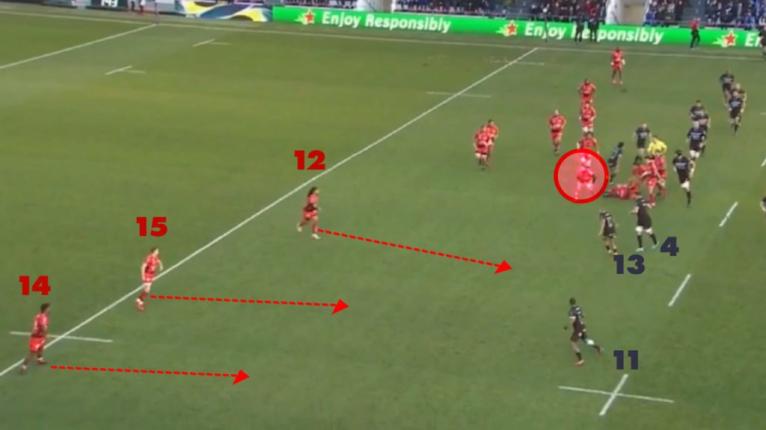
By the third phase, the opposition forward pack is under immense pressure to get up from the scrum and around the corner. Halfback Alby Matheson (9) is about to release his pass with Nonu (12), Ashton (15) and Tuisova (14) in play against a scrambling Bath defensive line.
Build and release
This pattern is typical of Toulon play – forward carries in pods moving the same way for a few phases and then a release to the backs.
It’s worth noting that it is foreign for Nonu to play this way – the 2-4-2 and 1-3-3-1 structures used in New Zealand intersperse forwards throughout the backs, limiting the opportunities for a backline to work together during phases. The backs really only get a ‘clean’ line (no forwards) off a set piece scrum or full man lineout – but in Toulon’s structure, it is common to find this in general play.
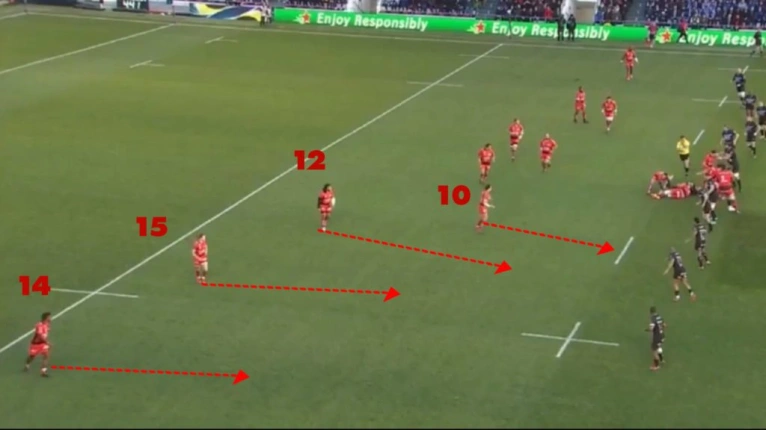
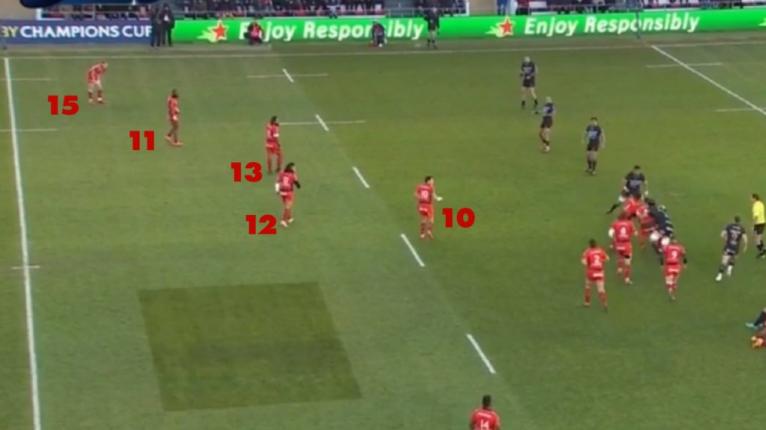
The downside of this pattern is the backs will only touch the ball every three or four phases, but the benefit is they have time to prepare and run set plays during phase play.
One of Toulon’s go-to plays is a simple ‘ID’ screen pass, with Bastareaud running a short option and Nonu floating out behind. This gives Nonu a chance on the fringe to use his passing game. On this play, Ashton (15) slides in giving Nonu an inside option.
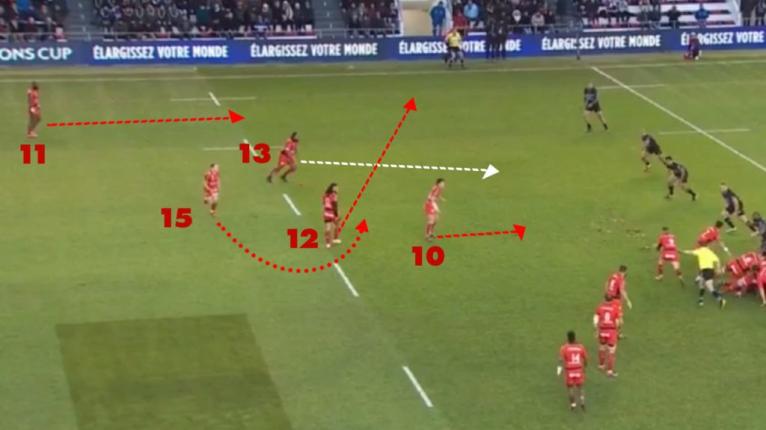
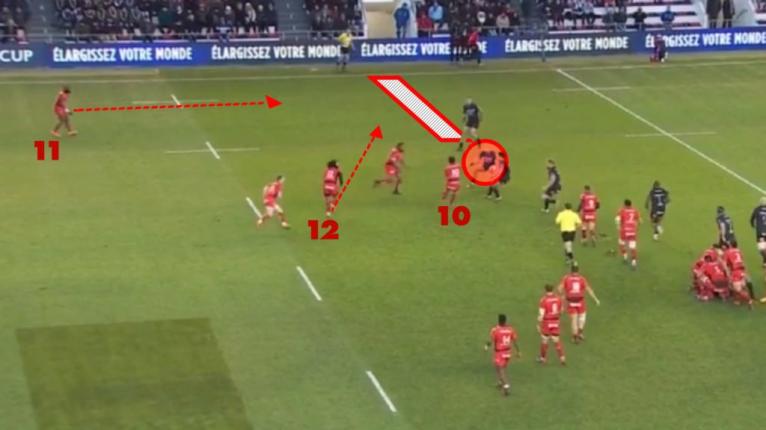
As the play unfolds, Bath centre Jonathan Joseph is sucked in to cover the Bastareaud line and Nonu will be presented with a two-on-one overlap on the edge, which frees Radradra down the touchline.
Running men
One notable feature of this structure is just how much running the midfielders Nonu and Bastareaud undertake during play. They are expected to play on both sides of the field, so when play moves to the far right, they need to reset the backline on the left. Often you will find Nonu at 13 and Bastareaud at 12, as the lighter Nonu can track back and forth faster.
Keep an eye on Nonu leading up to his try, he almost can’t keep up as Toulon go from around two or three forward carries to just one each time before releasing the backs.
Power-duo
Whilst Bastareaud is the primary power runner, Nonu on occasion will take a hit-up run or provide an option line. On these occasions, we see both the fleet footwork or bruising physicality of Nonu’s game. His ability to find space on carries is unrivalled for any 35-year-old centre, and many younger internationals still don’t compare.
What makes this combination work is Nonu is so versatile. He does everything: power carries, option line-running, first receiver duties and playmaking duties. If Toulon wants to bash you, they can use both runners. If they want to play expansive, they use Bastareaud to create a platform and let Nonu play off the back of it.
Despite having size, the pairing is far from one-dimensional.














































